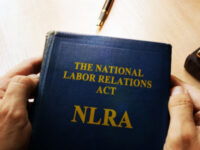Shot Through the Heart: Did SCOTUS Give Strikes a Bad Name?
On June 1, 2023, the U.S. Supreme Court issued a decision some have deemed a blow to the right to strike. The 8-1 decision crossed ideological lines, as both conservative and liberal members of the Court either joined the majority opinion or concurred. Strike In August 2017, the collective bargaining agreement between cement manufacturer Glacier […]










